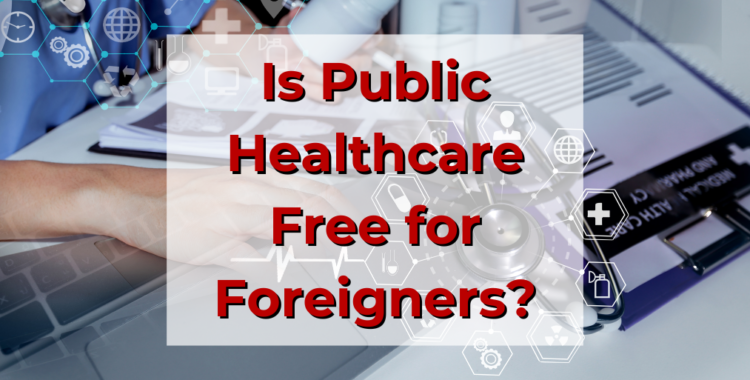Public Healthcare & Foreigners, FREE?
Is public healthcare in Spain accessible to all foreigners?
There's significant confusion surrounding the availability of free public healthcare in Spain, particularly for non-residents. The Spanish Health Ministry recently sought to clarify this matter.
It’s commonly understood that Spain offers a public healthcare system at no cost, leading many to believe that all newcomers automatically receive this benefit.
However, this isn’t always the case, as the regulations are more complex.
Under Spanish Law (Ley Orgánica 4/2000, dated January 11), all foreigners in Spain, whether they are legally residing or undocumented, are entitled to public healthcare.
Conversely, the General Health Law (14/1986 of April 25, Article 1.2) specifies that all Spanish nationals and foreign residents have the right to health protection and healthcare, but this only applies to those with legal residency, excluding undocumented migrants and other non-residents.
For third-country nationals from the UK or the US, for instance, registration with a public doctor is possible initially for five years if you are:
Employed or self-employed, contributing to social security.
Eligible to register a social security exchange form that provides public healthcare access in Spain (like the S1 form for British residents).
Contributing to a special social security scheme, providing public healthcare access after residing in Spain for a year.
These conditions are typically part of the visa or residency permit process.
After obtaining permanent residency in five years, you can access public healthcare without additional payments.
However, this has been a source of confusion, as reported on platforms like Citizens Advice Bureau, where some regions have demanded proof of social security contributions to register with a doctor.
In response to these discrepancies, Spain’s Ministry of Health has taken steps to address the legal ambiguities and the accessibility for undocumented migrants.
In 2012, the then-ruling party, PP, passed a law excluding migrants without legal residency from public healthcare access.
But on Tuesday, May 14th, 2024, the Spanish cabinet passed a draft bill aiming to restore the healthcare system’s universality, ensuring that anyone in Spain could receive medical treatment at health centres without being turned away or billed afterwards.
This decision followed a controversy caused by Ripoll’s mayor, Sílvia Orriols, who made it challenging for migrants to register for a health card and access doctors.
The 2018 amendment allowed undocumented individuals to seek help from social services, though many faced denials or lengthy delays.
Health Minister Mónica García emphasized the goal to mend these issues and utilize healthcare universality “as a means to foster more cohesive, efficient, and equitable societies.”
The new draft law mandates that unregistered or unauthorized foreigners in Spain only need to provide a responsible declaration to ensure they are never refused healthcare, as stated by the minister.

The law also intends to secure healthcare for Spanish citizens living abroad and their families, and for children of foreign residents in Spain consenting to reunification, provided no third party is required to cover the expenses.
Additionally, the draft aims to lower co-payments so that all aforementioned groups won’t be responsible for the full cost of their medications, although it remains uncertain if this will be implemented. The draft will undergo review by advisory bodies and the government, and it will not be enacted or appear in the Official State Gazette for potentially several months to years.












